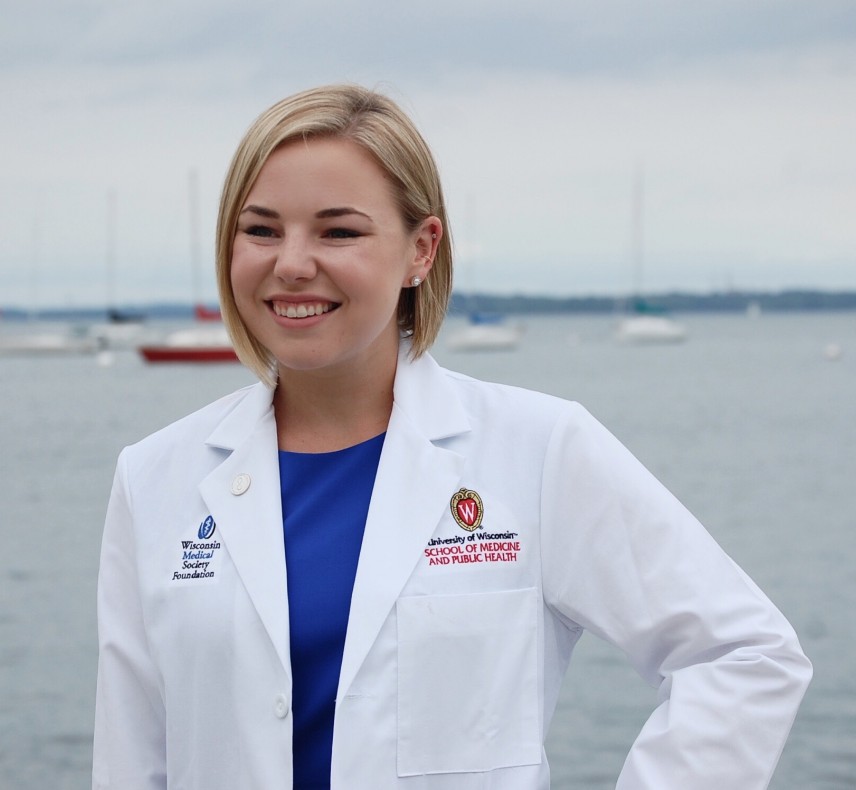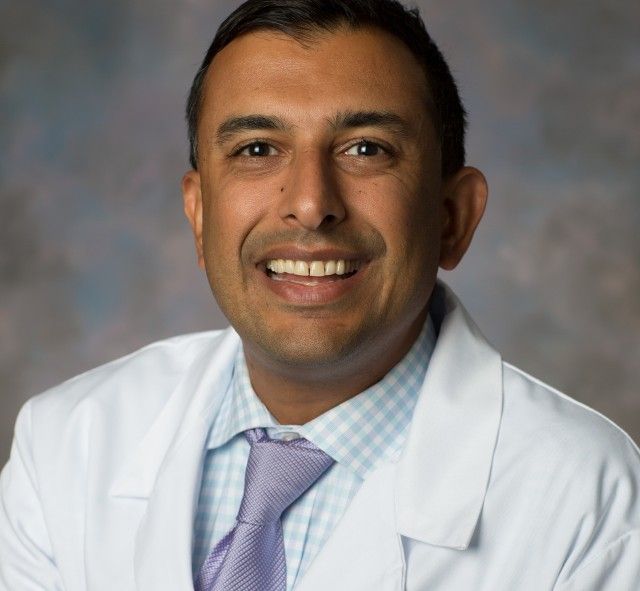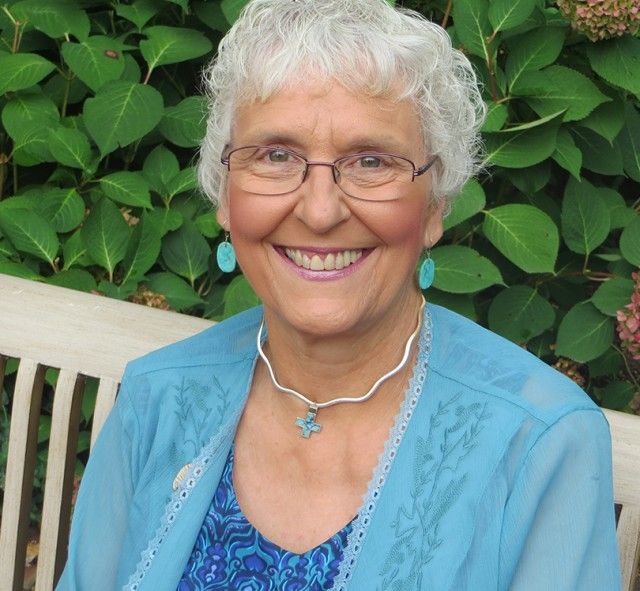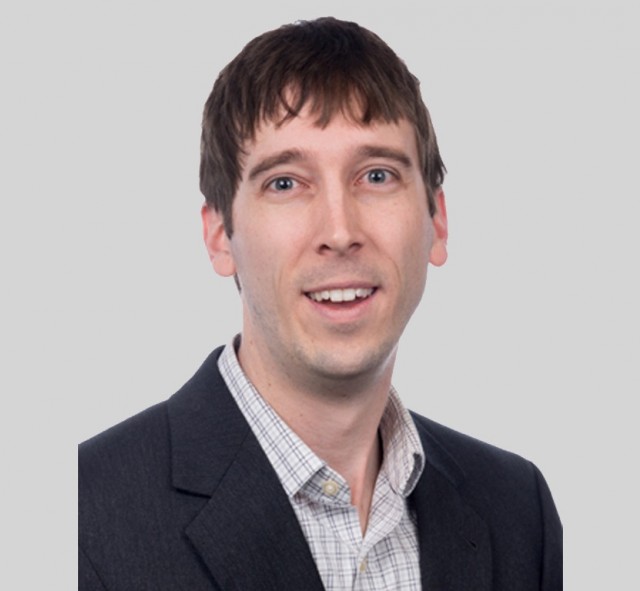Caroline Matchett, Wittenberg class of 2014, is another example of an alumna who embodies Wittenberg's values of intellectual inquiry, global citizenship, calling and service.
Matchett, currently a second-year medical student at the University of Wisconsin School of Medicine and Public Health in Madison, Wis., was recently named a 2017 TYLENOL® Future Care Scholar. From River Falls, Wis., Matchett majored in biology and minored in African and diaspora studies at Wittenberg.
TYLENOL awards this competitive national scholarship to students pursuing careers in health care who have displayed academic excellence, exemplary leadership, community involvement and dedication to a career of caring for others. Learn more about the award here.
“It is a genuine honor to be a TYLENOL® Future Care Scholarship recipient. I applied for the scholarship at the suggestion of a valued mentor,” said Matchett, who in addition to her medical degree is receiving a path of distinction in both global and public health. “I was notified in July that I had been chosen as a semi-finalist and at the end of August, I received the news that I had been selected as a recipient. This scholarship serves as a motivator to continue my vocational quest to grow in my understanding of our diverse global society so I can holistically navigate the art and complexity of something as intimate and person-centered as health care.”
While attending Wittenberg, Matchett challenged herself to embrace diverse service-learning opportunities by mentoring disadvantaged youth, assisting patients at the local medical center, coordinating campus community service events, and traveling to Lesotho, Africa.
“I was able to interact with and learn from people with varied backgrounds and perspectives, which enhanced my understanding of the diversity of needs in our world, broadened my global awareness of the various issues confronting marginalized populations, and sharpened my insights of social issues and my obligation to reduce them,” she said. “As a medical student, these experiences drove me to actively seek out ways to work with and empower the underserved. Receiving a path of distinction in global health and public health enhances my medical training by expanding and sharpening my global and public health lens in order to better prepare me to address society’s evolving health care needs.”
Matchett is currently undecided on her medical specialty, but as a physician, wishes to be a contributing member of the movement to re-imagine and create a more equitable, effective global health care system through service to vulnerable populations both domestically and abroad.
“Just as I did during my time at Wittenberg, I want to remain as involved as possible in all aspects of campus life,” said Matchett, a co-leader for a Mentorship Achievement Program. This program pairs medical students with a disadvantaged middle school student to serve as a mentor, tutor and role model.
She also co-leads the oncology and nephrology student interest groups. This past summer, she participated in UW-Madison’s Shapiro Summer Research Program designed for students interested in medical research.
“I worked on a medical education project that investigated the effectiveness of simulation-based medical education with deliberate practice on improving skill acquisition, self-confidence and self-assessment abilities of nephrology fellows,” she said. “This past summer, I also had the opportunity to study and research in Uganda for a month. This trip provided me with a wider global perspective on health care delivery systems as well as a deeper understanding of the constraints and benefits of the Ugandan health care system. Providing culturally competent health care that meets my patient’s needs and expectations while improving the health of the under-served requires a physician to have a comprehensive understanding of the circumstances and systems that create health barriers. Through this trip, I was able to explore the impact that political, socioeconomic and environmental factors have on shaping a patient’s ability to manage their own health care.”
The University of Wisconsin’s resolution to provide a medical education rooted in service, advocacy and advancement of human rights aligned with Matchett’s resolve to become a physician dedicated to achieving health equity. While it has been the ideal place for her to grow, excel and contribute as a medical student, it was Wittenberg that opened her eyes and her mind to other important complexities of life.
Enrolling in classes outside her major, such as Urban Education, at Wittenberg, Matchett gained critical insight into such issues as poverty, racism and discrimination. Her experiences of skydiving and rock climbing with the Outdoors Club proved to her that adventure, opportunity and reward extend beyond the field of vision, and are “revealed only when we test our wings.”
“I deliberately chose Wittenberg so that I could explore the intersection between science and humanism,” Matchett said. “While I pursued my deep interest in the sciences by majoring in biology and participating in several research projects in the field, my liberal arts education gave me a vast breadth of experiences to build upon and several affirming marks in my path toward becoming a physician. Moreover, my liberal arts education empowered me to recognize that I could find avenues to merge my desire to better understand my world and follow a calling to serve. As a physician, I believe these experiences will facilitate my understanding of not only the scientific aspects of medicine but human ones as well.
“At Wittenberg, I also became part of a nurturing community that provided an educational pathway that allowed me to broaden my world view and diversity of thoughts and values,” she added. “I especially value the Wittenberg faculty and staff who invested in my life on a personal level. I would not be where I am or who I am, without their encouragement and support. I am forever grateful that I chose Wittenberg for my undergraduate education.”







